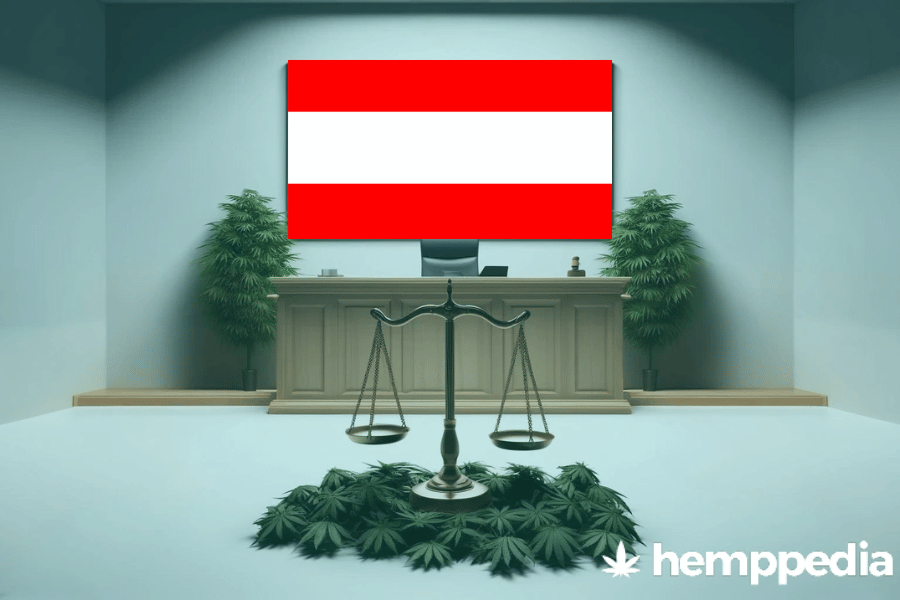TL;DR: Is CBD Legal in Austria?
In the realm of global cannabidiol (CBD) regulation, Austria presents an interesting case. To briefly summarize, CBD is currently legal in Austria, although the legislation surrounding its use, possession, and manufacture is complex and multifaceted. In this blog, we delve into the intricacies of these laws and unravel the legal status of this popular cannabis-derived compound.
Key points:
- Usage: Legal, with restrictions
- Possession limits: Strict guidelines based on intended use and THC content
- Significant legal distinctions: Strict separation maintained between CBD (perceived as medicinal) and THC-containing products (illegal).
CBD, a non-psychoactive compound found in the cannabis plant, is often associated with potential therapeutic benefits. Its vast popularity has led to its legal status being an issue of ongoing discussion globally as regulatory bodies grapple with its safe and legal use.
Overview of CBD Legislation in Austria
Legal Landscape
While CBD is seen as a medicinal compound in many regions, the legal view of CBD changes from one jurisdiction to another. In Austria, the existing laws are defined by federal bodies and may be influenced by European laws and standards.
Legal Status
In Austria, CBD is considered legal under certain conditions. The most crucial factor influencing its legal status is the tetrahydrocannabinol (THC) content. For a product to be deemed legal, the THC content must be less than 0.3% in accordance with EU regulations.
Regulatory Bodies
In Austria, the Austrian Health Ministry is the government agency responsible for regulating CBD products and their usage.
Conditions and Restrictions
Legal CBD products in Austria must adhere to strict conditions and restrictions, notably the THC content, type of products allowed, and certification or labelling requirements. Edibles containing CBD, for instance, are currently not permitted.
Historical Context of CBD Legislation in Austria
The legal status of CBD in Austria has evolved significantly over the years. Initially viewed as an illicit substance, perceptions changed following scientific evidence on its potential therapeutic benefits, leading to changes in legislation.
Possession, Use, Cultivation, and Sales of CBD
In Austria, rules apply to possession limits, age restrictions, and the points of purchase and consumption. Similarly, laws around the import and export of CBD products, cultivation of hemp for CBD, and manufacturing standards are strictly regulated.
Enforcement and Penalties
Non-compliance with CBD regulations can lead to severe penalties, including fines and legal consequences. Enforcement varies depending on whether CBD is used for medical or consumer purposes.
Comparative Analysis
When compared to other jurisdictions, Austria presents a progressive stance on the legality of CBD, but with conservative measures in place regarding its sale and use.
Conclusion
To summarise, CBD is legal in Austria under certain conditions. The current legal landscape is complex and can be navigated safely though purposeful understanding and adherence to the laid-down laws. It will be interesting to observe the evolution of CBD legality in Austria, given the worldwide trend towards increased regulation.





